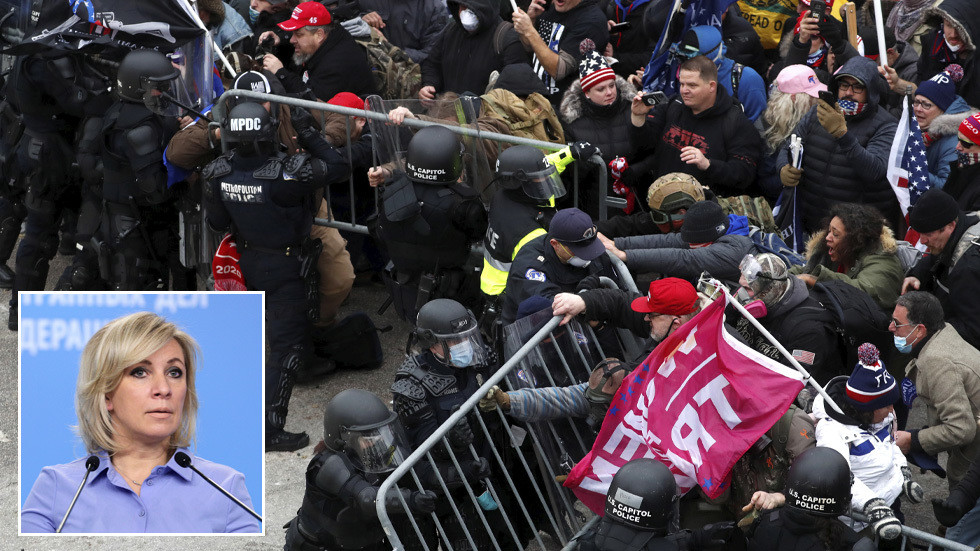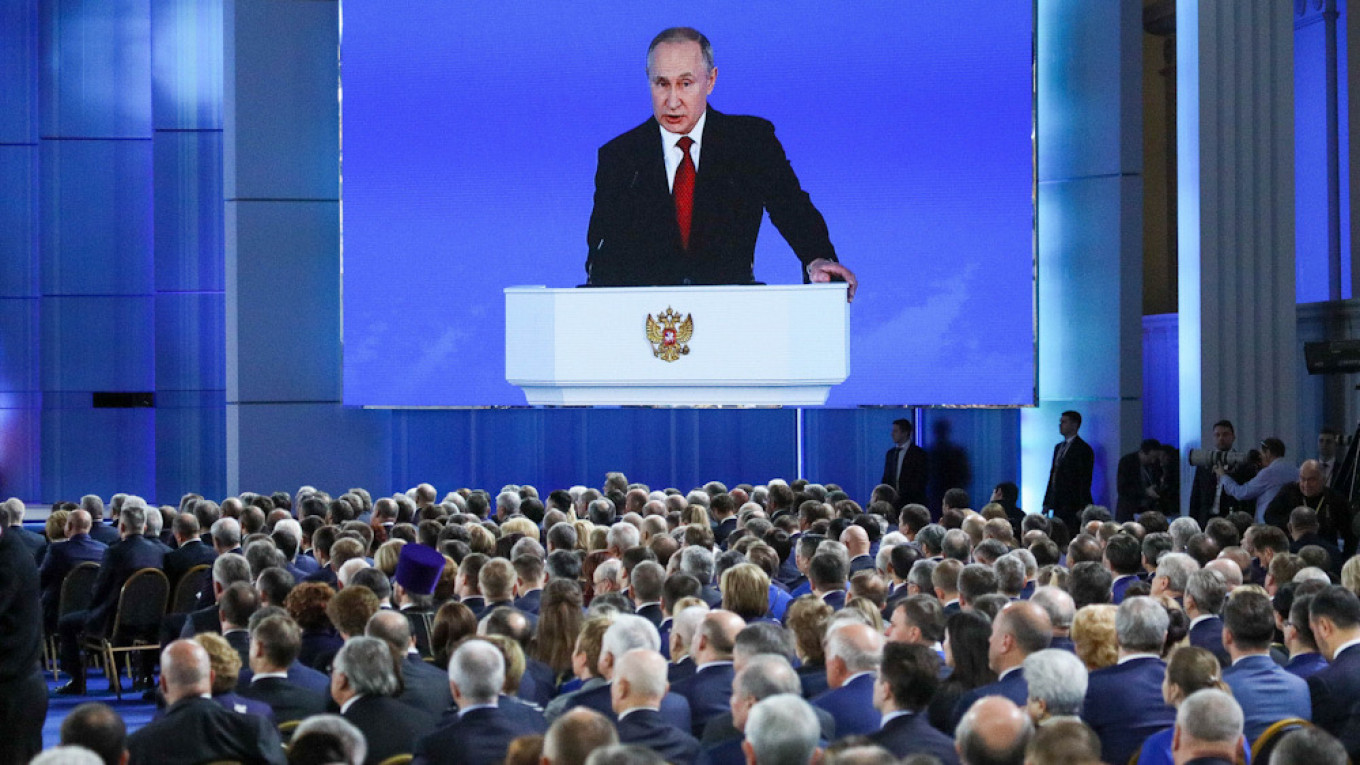There are different versions why Obama has accepted the Russian proposal. Some say that the main reason was the assured negative vote in Congress, some that it was due to British parliamemt rejection of the war scenario. There is a small chance that Obama decided in the end to listen to American people who did not want their country to go to another war because they believed that the unilateral use of armed force by the U.S., whether in the form of missile or air strikes against Syrian targets or actual troops on the ground, would only serve to increase the death toll while undermining the chances for a negotiated end to the violence.
Many experts were openly saying that armed intervention in addition to fueling chaos across the volatile Middle East would undermine basic norms of international law. Moreover, such intervention would risk exacerbating a situation already fraught with perils. A collapse of the Syrian state would create chaos across the Middle East, and a possible victory by radical jihadists would pose a grave threat for global security as well as the imposition of a tyrannical theocracy on Syria's people.
In any event, the most important thing is that this U.N.- sanctioned effort to remove weapons of mass destruction from the battleground of Syria may yet lead toward new hope both for Syria's beleaguered civilian population and for a world community. The responsible nations should resist the temptation to try to impose unilateral military solutions as long as there are viable prospects for diplomacy and negotiation. In this case, the result may turn out to be new hope for enhanced international order, and perhaps a possible diplomatic approach to ending the war in Syria itself.
U.S. and Russia must put aside old grudges and discard outdated Cold War suspicions, In this case they can achieve not only their immediate goal of getting chemical weapons off the battlefield in Syria but set the stage for a true "reset" in U.S.-Russia relations and herald a new stage in the relationship between two countries.
 The topic for the Discussion Panel is provided by Edward Lozansky
The topic for the Discussion Panel is provided by Edward Lozansky
Edward Lozansky is president of the American University in Moscow, Professor of World Politics at Moscow Sate University
 Syria Deal Offers More
Opportunities for Obama, Putin
Syria Deal Offers More
Opportunities for Obama, Putin
Martin Sieff
Martin Sieff is a senior fellow at the American University in Moscow and Chief Global Analyst at The Globalist
It’s an ill wind that blows no one any good. The current ugly confrontation between U.S. President Barack Obama and the Republican majority in the House of Representatives has the potential to do a great deal of good for U.S. relations with Russia.
Already, national attention has riveted across America on the shutdown of the federal government forced by the intransigence of the Republicans in the House and their obsession with destroying national health care reform, the president’s signature domestic achievement so far.
In fact, however devastating it proves to be domestically for the United States, the government shutdown and continued deadlock in Washington is already forcing Obama administration policymakers to take a lower profile around the world and abandon their more ambitious interventionist ambitions. The president has been forced to cancel his planned attendance at the East Asia Summit in Brunei and the Asia Pacific Economic Cooperation Forum in Bali to stay at home and deal with the political crisis. Secretary of State John Kerry will lead the U.S, delegation to both events instead.
The unintended consequence of this clash has been to take Syria off the national media screen across America. As if by magic the rising tide of pseudo-moral outrage demanding U.S. air strikes against Syria has vanished like the morning dew. This means the deal will have time to work.
If the deal proves a success, it means President Obama will go down in the history books alongside the now revered Republicans Dwight D. Eisenhower and Ronald Reagan as one of the three great American presidents over the past 60 years who successfully and wisely resisted intense popular pressure to plunge into un-necessary and potentially disastrous wars – against the Viet Minh guerrillas in Vietnam fighting to expel France in 1954, and against Syria in 1983 after Shi’ite Hezbollah (Party of God) guerrillas in Lebanon killed 243 U.S. Marines on a peacekeeping mission by driving a truck bomb into their barracks south of Beirut while they were sleeping.
Cooperation with Russia in implementing the chemical weapons deal will also teach the current generation of junior policymakers in the Obama administration what the vastly experienced Kerry and Secretary of Defense Chuck Hagel already know – that Russia is still a major world power enormous potential to help U.S. interests across Europe, Asia and the Middle East provided its own interests and dignity are recognized and respected.
This is a lesson that needs to be learned anew, it seems, every time a new administration takes office in Washington.
The areas where cooperation is in the interests of both nations include superpower cooperation against international terrorism, especially extreme Islamist groups. They cover advancing the agenda on arms control and working to ease tensions and resolve security issues the length of Europe from Poland and Belarus down to Moldova and Armenia-Azerbaijan.
U.S.-Russian talks are now urgently needed to coordinate their security policies on Afghanistan after the mainly American International Security Assistance Force (ISAF) pulls out next year. Russia continues to give the U.S. Air Force free use of the Northern Corridor route to securely supply U.S. and allied forces in Afghanistan.
The growing pressures to slash the U.S. defense budget and the impact of the current automatic sequestration cuts demand that the United States reaches new agreements with Russia over coordinate cuts in strategic nuclear programs, especially ballistic n missile programs. And no one in Washington seems to have woken up to the fact that the revolution in fracking technology to extract oil and natural gas from shale formations is making the United States a global energy producer and exporter on a scale comparable to Russia. There would be enormous advantage to both nations in coordinating their energy and pricing policies.
Only a few weeks ago the United States and Russia appeared to be heading for dangerous clashes and confrontations, not just on Syria, but on a whole range of issues. However, the agreement on Syria negotiated by Secretary of State Kerry and Russian Foreign Minister Sergei Lavrov and approved by presidents Obama and Putin has already proven to be a game-changer, transforming the dynamic in the superpower relationship. And the political crisis in Washington is educating a new generation of US policymakers about the advantages of maintaining positive partnerships with other global powers. The opportunity for a new and brighter era of cooperation and growing partnership is there.
 The Syrian
Crisis and Realigning America’s Thinking About Russia
The Syrian
Crisis and Realigning America’s Thinking About Russia
Gilbert Doctorow
Research Fellow, The American University in Moscow
US-Russian cooperation over ridding Syria of chemical weapons is just getting underway. The parties face a daunting task given the conditions on the ground in the war-torn country. Should they succeed in Syria in the months ahead, the feel-good factor may provide impetus to common action in addressing other challenges both countries must deal with in the international arena.
But let us not limit our thoughts to the state-to-state relations as managed by officials acting on their own best judgment. Obama’s U-turn over military intervention was not a eureka moment coming from his own and his close advisers’ reconsideration of red lines or other abstract principles. It was not urged on the President by wise men in the foreign policy establishment. Quite the contrary: it came in response to an unprecedented failure of the British Prime Minister to get what was essentially a war resolution through Parliament and then the possibility, even the likelihood that the American Congress would act similarly. A groundswell of popular opposition to yet another war in the Middle East was what Congressmen heard from their constituents as they wavered in their support for the Commander-in-Chief, whose staffers were watching the numbers backing his resolution melt away.
On the Left and on the Right of both parties, politicians and pundits rejected America’s acting unilaterally through a coalition of the willing and flouting both the United Nations and international law. The more catchy sound bites in the anti-intervention camp were coming from people as diverse as Dennis Kucinich, Rand Paul and Pat Buchanan, who otherwise hardly agree about anything. The mainstream of Neocon Democrats and Republicans, who agree on everything, together with the foreign policy establishment as a whole, was outmaneuvered.
In the midst of this cacophony, there were very clear and insistent statements coming from Russia that the issues of the day were the unacceptability of solutions imposed by military force or threat of force and the unacceptability of world powers pleading their ‘exceptionalism’ to opt out of the international conventions that should be binding on all.
While it may be taken as axiomatic that the Russian stance on Syria and the world order generally, as exemplified by Vladimir Putin’s 11 September essay on the op-ed page of The New York Times and repeated in Sergey Lavrov’s address to the UN General Assembly 16 days later, had no impact on the US foreign policy establishment, who have too much invested in their well-established positions on Russia to do U-turns, it may well be that it has softened up large swathes of the general public to the voice of reason as opposed to ideology.
A couple of days ago I received an email from an acquaintance in Tampa, a retiree from the finance department of IBM whom I always thought of as rather conformist, meaning a flag-waiver, in foreign policy issues. Now he wrote: "In retrospect every move that the USA has done in the Middle East has been wrong--- should have kept Sadam in Iraq, Quadaffi in Libia [sic], Mubarak in Egypt, and should support Assad in Syria.” He also remarked that his daily paper, the Tampa Star, had carried an article on Putin’s nomination for the Nobel Peace Prize, though he was unsure what to make of it.
With the American hegemonists, who are also the leading detractors of Russia, in disarray, it is time for believers in a multi-polar world order and in the constructive potentialities of Russian-American cooperation to take the initiative and speak out: speak out in more venues, to reach more people on Main Street America. With all due apologies to Sinclair Lewis, the way to overcome modern day Babbit-ry in Washington, D.C. may be through Main Street.
 SEIZING THE OPPORTUNITY
SEIZING THE OPPORTUNITY
Frank Shatz
ColumnistThe Virginia Gazette
Edward Lozansky, President of the American University in Moscow, in a recent op-ed article published in the Moscow Times, stated that thanks to unexpected turn of events, one of its potentially most valuable allies of the U. S. could turn out to be Russia.
"The resolution approved by the U.N. Security Council spread-headed by Russian diplomatic efforts, to transfer and destroy Syrian President Bashar al-Assad’s chemical weapons arsenal could in fact turn out to be an invaluable opportunity for a true "reset” in the two countries relationship.”
Indeed, there is a historical precedent for grasping such an opportunity.
In 1998, I had a wide-ranging interview with Sergei Khurshchev, the son of the former Soviet leader, Nikita Khurshchev. He was at that time a senior fellow at the Thomas J. Watson Jr. Institute for International Studies at Brown University. Sergei was very close to his father, was his confidant and was the editor of his landmark memoirs, "Khurshchev Remembers.”
Talking about the Cuban missile crisis of October 1962, one of the most significant events of the twentieth century, he noted that because of the carefully calibrated actions taken by his father and President John F. Kennedy, a nuclear war between the two countries was avoided.
Sergei explained that the purpose of the placement of nuclear-capable missiles in Cuba was to prevent a U. S. orchestrated invasion of that country, He acknowledged that his father miscalculated the American response to placing nuclear-tipped missiles in Cuba. When it became apparent that the American response could led, to full-scale nuclear war, both leaders pulled back from abyss.
Khrushchev in a letter to Kennedy requested a pledge that the United States would not invade Cuba or participate in an attack on that country. Sergei said that both countries wanted desperately to avoid conflict and have been willing to compromise.
The peaceful resolution of the Cuban missile crisis had a profound effect on the development of relationship between the U. S. and the Soviet Union. A "crisis hotline” was established and the stage was set for a more cooperative policy between the two countries. It culminated in the nuclear test-ban treaty of 1963.
Sergei recalled that following the treaty, his father and Kennedy met to set the stage for a "policy of détente.” "My father was a pragmatist above all,” he said. "His primary goal was to introduce needed economic reforms and achieve détente with the West.”
If the leaders of United States and the Soviet Union could find common ground in the wake of resolving the Cuban missile crisis, why couldn’t the leaders of U. S. and Russia do the same in the wake of resolving the crisis over Syria’s chemical weapons stockpile?
 Andrej Kreutz
Andrej Kreutz
Andrej Kreutz is Adjunct Professor of University of Calgary and Affiliated Expert of the European Geopolitical Forum
Can Syria Help Reset Relations?
Russia and its leaders’ diplomatic achievements towards facilitating the solving of the problem of Syrian chemical weapons was widely recognized and accepted, even by some scholars and analysts who had been known for their Russophobic prejudices and hostility towards Moscow.[1] As one of them, American Professor Rajan Menon admitted, "Putin was able to place Russia on center stage and to show that it is a great power that still matters.”[2] However, the question whether this unexpected accomplishment might be able to establish a model and precedence for more progress on the way to solve the other "burning” international issues and thus facilitate Russian-American rapprochement is difficult to answer, at least at present.
First of all, we still do not know and cannot predict with certainty the future developments in Syria and its surrounding Middle Eastern region. Although the process of the chemical disarmament of Syria has started to proceed smoothly, any provocation by the Syrian rebels or other unfortunate local events could change the relatively favourable situation, thus causing new international tensions and conflicts. It would probably be so much easier for them to do that because part of the American political class and its numerous supporters in Europe are in fact very sorry that the attack on Syria was delayed and that Moscow achieved relative diplomatic success.[3] During the last decade, the doctrine of American domination without any equal partners to deal with became generally accepted by the West as a whole, including even France, which for a long time opposed it. The opposition led by France and Germany against the American war in Iraq in 2003 now belongs to history and Russia would not be able to find any meaningful political allies in Europe. The situation is aggravated by Russia’s still persisting weaknesses and many unsolved internal problems, including the divisions in the Russian political class itself. While Putin and his followers want to preserve and uphold the independence and national traditions of the country, in Russia there is no lack of important people who want to join "the global West”, and to submit their country to American political and cultural domination.[4] The future direction of Russia’s development has not yet been determined, and this lack of agreement at the elites’ level makes the political image of the country weaker and less convincing.
In spite of these and some other possible uncertainties, I still believe that there is enormous potential for future American-Russian accommodation and cooperation. Although the US remains the leading power in the world, it still cannot completely impose its "image and its likeness” on the rest of it. Up to now, both the US and Russia are the most important nuclear powers, and no progress on this issue which is vital for everyone can be achieved without their agreement and understanding.[5]
In addition, all its real problems notwithstanding, Russia still remains a great Eurasian power and the largest country in the world: a country which is rich both in natural resources and well educated, highly intelligent people. Consequently, it remains interested and involved in most of the current international challenges and controversies. Cooperation with it might often be very helpful. As James Carden, who served as an Advisor to the US-Russia Presidential Commission of the US State Department argues, "a policy accommodation with Russia in the Middle East should not be dismissed out of hand.”[6] While it is highly unlikely that Russia is going to become the dominant power in the region, it may be worthwhile to question what kind of positive role it could play there.[7]
In spite of all the existing differences, both the Americans and the Russians share similar cultural roots, though they developed them in different ways and under very different circumstances. Finally, since the collapse of the Soviet Union, Russia is simply overall too weak to represent any serious challenge to American security. If the American leaders were able to think in a strictly rational and pragmatic way, they would probably stop their senseless information warfare against this country and instead look for better relations with Moscow.
Endnotes
1.Dominique Moisi, "L’etrange faiblesse de l’Amerique face a Vladimir Putin”. Les Echos, fr., September 16, 2013.
2. Rajan Menon, "Weighing Russia’s Syria Success,” The National Interest, October 1, 2013. Also he admits that "Moscow’s diplomatic machine seemed well oiled, efficient and expertly operated with impressive speed” (ibid).
3. According to such a reputed scholar as Dominique Moisi, the week following the Lavrov-Kerry Geneva agreement on September 13, 2013 might in future be remembered as the "semaine de dupes” and the sign of Washington’s weakness.
4. The problem has been stressed by Putin himself. According to him, "It’s impossible for Russia to swap sovereignty for a better quality of life because, if we lose our sovereignty, we will lose our country” ("Loss of ‘sovereignty’ unacceptable price for quality of life”, Moscow, October 2, 2013, Interfax.
5. As a leading researcher at the Institute of International Security Problems of the Russian Academy of Science, Professor Alexey Fenenko notices, "From a historical perspective, America’s attitude to a Russian leader appears to depend primarily on Russia’s willingness to implement nuclear non-proliferation”, "Why don’t the Americans (and John McCain) like Vladimir Putin?” Russia Direct.com, September 29, 2013.
6. James Carden, "Angst over a Russian-dominated Middle East should take a closer look at Russia’s underlying interests and motives in the region”, Russia Direct.com, October 2, 2013.



_jpg/250px-ElbeDay1945_(NARA_ww2-121).jpg)
